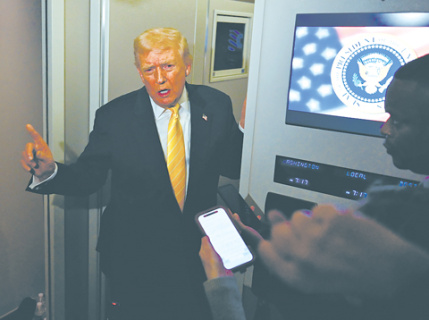
In a dramatic political pivot, former U.S. President Donald Trump has fundamentally altered his position on the explosive case surrounding convicted pedophile and financier Jeffrey Epstein, whose death in 2019 left a cloud of unanswered questions over a vast network of alleged clients. Once a vehement opponent of releasing investigation materials, Trump now advocates for their full disclosure. This unexpected shift appears to be a direct response to mounting pressure, including a significant internal rebellion within his own Republican Party, signaling a troubling development for the former White House occupant.
The U.S. House of Representatives is poised to vote on the public release of documents tied to the deceased financier. In a significant move, Trump has publicly urged the Republican-majority caucus to endorse the relevant legislation. Through a post on his social media platform, Truth Social, he declared, ‘We have nothing to hide. It’s time to end this Democrat hoax,’ attempting to frame the disclosure as a partisan victory rather than a concession.
This latest development marks an unforeseen twist in a saga that has captivated America, unfolding like a high-stakes political thriller. Throughout his presidential campaign, Trump frequently pledged to declassify the ‘Epstein files’ upon assuming office, often leveraging insinuations about secret lists of high-ranking pedophiles involving Democratic politicians to rally support. Yet, once in power, that promise went unfulfilled. His appointed FBI Director, Kash Patel, even testified before Congress that no such ‘Epstein files’ – meaning compromising documents – existed, and that all pertinent information had already been released. However, recent actions by Democratic lawmakers have challenged this assertion, demonstrating it to be, at best, a partial truth. They reportedly obtained a series of letters penned by Epstein between 2011 and 2019, allegedly from his heirs. While these letters mention Trump, they do not contain direct evidence implicating him as a client of Epstein’s alleged illicit network.
The emergence of these letters has undercut previous efforts by the President and the Republican Party leadership to obstruct the passage of legislation aimed at full disclosure of all materials related to the case. House Speaker Mike Johnson, for instance, had reportedly gone as far as partially suspending the lower chamber’s operations, ostensibly due to a government shutdown over budget disagreements. The underlying, strategic reason, however, is believed to have been a Democratic-initiated petition to force a vote on the Epstein files disclosure bill. Under congressional rules, if a majority of representatives support such a petition, the bill is brought to a vote regardless of leadership’s objections. In this specific instance, the Democrats were just one vote shy of triggering the vote, with the missing vote belonging to Democrat Adelita Grijalva, who was unable to be sworn in due to the shutdown. With the shutdown now resolved and Grijalva sworn into office, the path to a vote became clear, likely prompting Trump’s directive to his party to support the bill.
This moment also signals Trump’s tacit acknowledgement of a significant ‘revolt’ brewing within what was once considered a solidly Trump-aligned Republican Party. Prominent figures, such as Congresswoman Marjorie Taylor Greene, previously a staunch Trump loyalist and a symbol of unwavering support, have voiced profound disillusionment. Greene has openly accused Trump of intentionally withholding information regarding the Epstein case, a sentiment echoed by a growing number of Republicans, including several members of Congress.
The unfolding scandal is now being compared to the seismic proportions of the Watergate affair, which ultimately led to President Richard Nixon’s resignation in 1973, according to Vladimir Vasiliev, chief researcher at the Institute of the USA and Canada of the Russian Academy of Sciences. He suggests that Democrats are prepared to leverage the ‘Epstein affair’ to significantly diminish Trump’s approval ratings and potentially challenge the outcomes of the 2024 presidential elections. Vasiliev outlines two primary defensive tactics for Trump. The first involves deflecting blame onto Democrats, evidenced by Trump’s alleged request to Attorney General Pam Bondi to investigate Epstein’s purported ties to Democratic Party officials, notably former President Bill Clinton. However, Vasiliev views this strategy as precarious. He proposes a more promising alternative: ‘Convincing Democrats to make concessions on other issues, including foreign policy.’
This situation eerily echoes aspects of Trump’s first term in office, where allegations concerning Russian interference led to a notably tougher stance by the U.S. President towards the Russian Federation. Vasiliev posits that a similar dynamic could unfold now, suggesting the domestic political pressures might once again spill over into significant shifts in U.S. foreign policy.
